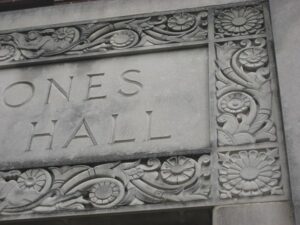When people make 5-year plans, or master plans, they don’t plan for the worst. No one plans to get hit by a hurricane, or that a wildfire will burn down the campus. The basic assumptions of these plans minimally preserve the status quo. But as 2020 has revealed, whatever we might have predicted for WCC’s future, probably won’t be happening.
What little we know about the future indicates that it will be very different from what we had assumed. The pandemic is unlikely to be gone much before Summer 2021. Fall enrollment is down. Winter enrollment, which hasn’t started yet for WCC, is likely to be down as well. And the changes brought about by COVID-19 will be here for a long time.
The Board of Trustees is creating WCC’s future right now through the decisions they make. COVID-19 (and a host of other factors) will likely affect WCC for years and in some unexpected ways. The pandemic could affect everything from campus infrastructure and academic programs to enrollment and staffing.
So, a decision like going through with plans for the “Advanced Transportation Center” may be a problem, especially if the Board plans to shop the cost of construction off on WCC’s future students. If COVID-19 continues to depress enrollment, for example, the tuition may have to rise substantially to produce the funds needed to pay for the building’s debts. Large rises in tuition may negatively impact enrollment of women and minority students – as they have in the past.
Today’s decisions constrain WCC’s future
Right now is the time for the Trustees to be making plans for the coming decade. Those plans shouldn’t focus on building a hotel and convention center. They should focus on keeping WCC afloat. We’ve seen WCC’s “Master Plan.” What the Trustees really need to create is WCC’s Master Financial Plan. The Trustees should also acknowledge that the bad decisions they make today will negatively affect WCC’s adaptability and flexibility in the future.
This plan should detail exactly how the Board intends to pay for the long-term debt they took on for the Health and Fitness Center. It should provide information about how WCC will pay for the enormous growth in WCC’s administration. The Master Financial Plan should also indicate how WCC intends to pay for the long-term care of the campus infrastructure.
In addition, the Master Financial Plan should describe WCC’s revenue strategies and assumptions for the next five, ten, fifteen and twenty years. It should include plans to restrain the growth of the administration, eliminate unnecessary positions, contain administrative costs, and develop a highly accurate revenue picture of WCC’s “other” sources of revenue. The Master Financial Plan should also include strategies for increasing enrollment by recruiting non-traditional students, designing new programs, and improving academics.
The WCC Trustees cannot continue to make decisions without considering their impact on WCC’s future. One of the core principles of the Girl Scouts is to “leave a place better than you found it.”
WCC’s Trustees would do well to take this practice to heart.
Photo Credit: Rocky VI, via Flickr

































